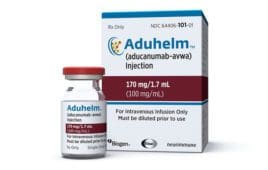
New research gives insights into how the design of clinical trials can improve to address the “critically low” research pipeline and improve the chances of finding effective dementia therapies.
Against a backdrop of a number of high-profile clinical trial failures, research by the University of Exeter, presented in posters at the Alzheimer’s Association International Conference (AAIC) 2018, highlights the importance of conducting more targeted trials. It gives insights into how to obtain better evidence that potential treatments may be effective, and how to recruit specific groups of people to trials.
Research presented at the conference highlights that there are currently 142 active clinical trials in Alzheimer’s disease worldwide. Of these, only 42 are on disease-modifying therapies, only 29 of which were in phase 2 or 3 in drugs, small molecules or biological therapies – meaning they have any meaningful chance of translating to disease-modifying treatment for Alzheimer’s disease. The research found this figure to be 40-fold lower than the number of cancer trials at this phase of progression.
Clive Ballard, Professor of Age-Related Diseases at the University of Exeter Medical School, said: “When we drilled down into the number of active clinical trials in dementia we revealed that the number that could make a meaningful difference to treating disease is now critically low. With no new licensed treatments in the last 20 years, addressing this shortfall is an urgent priority. . Our research outlines the new approach needed to enable us to do better by the 40 million people worldwide who have dementia, and for an economy which is projected to spend a trillion dollars on treating this disease by the end of 2018.”
The research also revealed the targets that clinical trials are focussing on, highlighting where the scientific community thinks the best hope of treatment currently lies. Of the 29 identified by the team, ten are looking at treatment or approaches to amyloid and four at tau – both proteins that can build up in the brain. Three focus on neurotransmitters while three more are on repositioning other existing drugs. One is a regenerative treatment and one is targeting neuroinflammation.
Further research by the team highlights how future research can be targeted and conducted more efficiently. Conducting trials in groups such as those at high risk of developing dementia means fewer participants are needed to obtain an equal statistical power and reliability of results.
Increasingly, research is focussing on the early stages of dementia and dementia prevention, however the costs involved in recruitment are high, as large numbers are needed because of the varying pathways involved in dementia.
The Exeter-led study looked at data from the participants who were given placebos in three randomised clinical trials, of 939 people. They analysed biomarkers and risk factors such as genetics, the presence of amyloid plaque in the brain and a family history of Alzheimer’s disease. They found that considering these factors significantly increases the power per patient screened to detect the potential for treatment to effect brain function.
In a study sponsored by the Wellcome Trust and led by King’s College London, working with Exeter, researchers analysed a library of compounds 1,300 in the Broad Institute connectivity Map, to select which would be the best candidates to take forward to clinical trials for Alzheimer’s disease. They used mouse models to look at which of these compounds changed MRNA expression in cancer cells, making them candidates as disease-modifying treatments in dementia.
Of these, they then 83 to test in cells, and selected the most promising six of those to take forward in mice. They analysed aspects including whether they protect cells from exposure to amyloid or tau proteins, implicated in dementia, or whether they protect synapse and nerve activity.
The researchers conclude that this approach can increase the potential to screen existing compounds that have potential to be effective treatments for Alzheimer’s disease, and refine those that should be taken forward to clinical trial.
Filed Under: Neurological Disease




